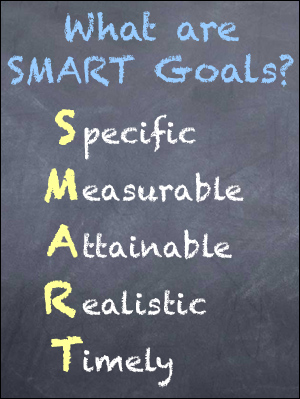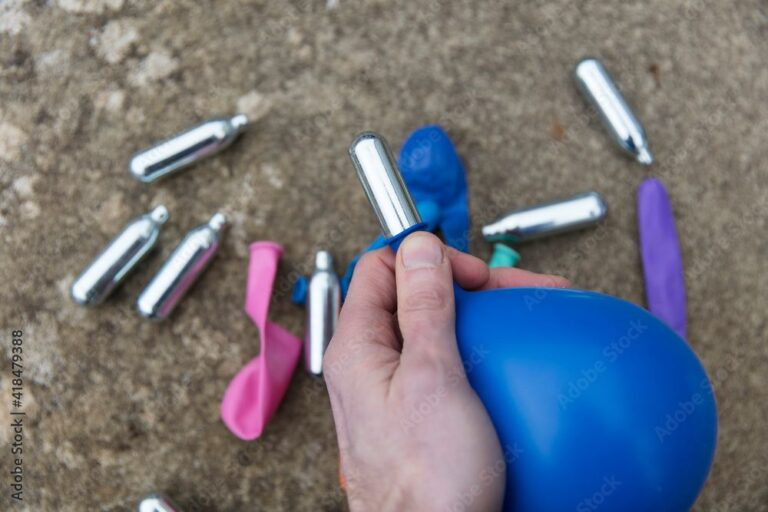Recovery from drugs and alcohol is a difficult challenge for anyone. It’s therefore a good practice for those learning to live a drug and alcohol free lifestyle to set goals for their recovery.
Goals are important for staying on track, and measuring success, but it’s not always enough to simply set goals. There are good ways, and not so good ways to create goals. Knowing the difference can be crucial.
One of the good ways to set goals is to use a popular strategy called SMART Goals. SMART stands for Specific, Measurable, Attainable, Realistic and Timely or Time-sensitive. This is a useful guideline for setting goals, achieving them and then being able to set even bigger goals. SMART goals are popular in business settings, education, and yes, even recovery because they work.
How Are SMART Goals Created?
 Below are the basic criteria for creating or setting SMART Goals. Using these objectives will optimize the efficiency of the stated goals and avoid wasting time chasing goals that cannot be achieved.
Below are the basic criteria for creating or setting SMART Goals. Using these objectives will optimize the efficiency of the stated goals and avoid wasting time chasing goals that cannot be achieved.
Specific – In setting goals for recovery it’s important to be clear about the desired outcome. Whenever a person knows what they want, it’s easier to avoid distractions that will inevitably arise, and there is less guesswork about what the next step towards achieving the goal will be. Take the time to write the specifics of the goal down and put it in a place that you can easily look at it from time to time. This will help keep the details clear in your head.
Measurable – Being able to measure the progress of achieving a goal is empowering. For instance, when a person who wants to lose ten pounds begins a diet and exercise regimen, they can periodically weigh themselves to measure their progress. Once a person sees the progress they’re making, they get motivated to stick to the regimen. Can your goal be measured? If not, rewrite the goal.
Attainable – Set a goal you can complete. An easy way to get discouraged is by creating goals that are too lofty. Creating an attainable goal that will challenge you to commit to its demands, but won’t be overwhelming is vital. Continuing to realize their objectives improves a person’s self-esteem and self-confidence. This is invaluable in recovery.
Realistic – Having a realistic goal means that you have the tools necessary to actually accomplish it. A carpenter can’t have the goal of building a house without a hammer and nails. Recovery from addiction works in much the same way. Set goals in which you know you have the skills and coping mechanisms with which to be successful.
Timely or Time Sensitive – Have a time cap on your goal. Deadlines can drive commitment and behavior. Without a starting or ending point, a goal is too vague. Having a time sensitive goal also allows a person to know when they’re getting close to the finish line, and in many cases this is just the push needed so that they don’t give up on themselves or their goal.
What is an Example of a SMART Goal?
There are many goals that people in recovery set that pertain to lifestyle changes, such as eating better, exercising, practicing yoga or mindfulness, and just staying sober.
If exercise is a priority, a SMART Goal might be to walk two miles, every other day, for four days a week, starting on Sunday. Even though it’s a simple goal, it’s specific enough to know that the walk should start every Sunday, it should be for two miles, and you rest each day in between walking days. It is measurable using a pedometer or mapping out a course to walk that is two miles in length.
It is attainable because two miles won’t take much time and be too hard to complete. If two miles is too difficult, set it back to one mile to make it attainable. Over time, increase it to two miles. It is realistic because two miles is decent exercise and it won’t cause injury or harm. Starting out at ten miles is neither attainable nor realistic for somebody just starting out with a new exercise plan.
Finally, two miles is timely or time sensitive because it shouldn’t take too long to reach the goal, even if it is too much in the beginning. It is a goal that can be reached in a short enough time span to make it worthwhile.
Learning to set SMART goals is a process, and if you don’t successfully achieve your goal the first couple of times, do not get discouraged. Reset your target according to the SMART guidelines, and over time you will find yourself achieving your goals and creating new ones. Reaching and surpassing goals can build self-esteem and instill a new confidence in oneself.
Note: SMART Goals should not be confused with SMART Recovery, which is a mighty fine program that teaches mechanisms for building motivation, coping with urges, balancing lifestyles and managing thoughts and behaviors.
Related:
What are the Stages of Change for Addiction Behavior Modification?
Motivational Enhancement Therapy Empowers You
Exercise, Endorphins and Addiction Recovery





